EC Communication - A renewed EU strategy 2011-2014 for Corporate Social Responsibility
17.01.2012 13:35:56

Brussels,17 January 2012
Introduction
On 25 October 2011, the European Commission (EC) published the Communication “A renewed EU strategy 2011-14 for Corporate Social Responsibility (CSR)”, directed at strengthening EU global leadership on CSR by implementing an intensive “Agenda for Action”. Euro Coop warmly welcomes this move and, building on its solid experience with regard to the CSR issue, would like to examine more in-depth the nature of this policy document and put forward specific policy recommendations.
The inclusion of co-operatives
As a means of preliminary remark, Euro Coop would like to highlight the fact that consumer co-operatives are member-owned and democratically-controlled enterprises that base their operations on values and principles, among which social responsibility features a pivotal role. Since their creation, they have in fact promoted a way of doing business that is inherently responsible; care for community (including that of developing countries), solidarity and environmental protection are amongst their first priorities.
Against this backdrop, Euro Coop particularly welcomes the mentioning in the new EC Communication on CSR that “Certain types of enterprise, such as cooperatives, mutuals, and family-owned businesses, have ownership and governance structures that can be especially conducive to responsible business conduct.” Euro Coop certainly sees this acknowledgment as an important step forward in the recognition of the contribution that consumer co-operatives make to CSR and thereby to shaping a more responsible society. Nonetheless, we regret that such mentioning is not followed by a more comprehensive investigation of the contribution that the co-operative model makes to the factual implementation of CSR policies.
In particular, it must be noted that co-operatives have done better at coping with the financial crisis of 2008-2009 than other private enterprises. Because their members are both customers and owners, they thus have more control over the whole entrepreneurial structure. In addition, members of a co-operative have equal voting rights, independently of the amount of capital they hold, and their room for manoeuvre is accordingly greater. Co-operatives represent therefore a democratic business model, centred on the real economy and flexible enough to adapt to the needs of industrialised countries as well as developing ones. For these reasons, Euro Coop believes that when conceiving a CSR strategy, the co-operative experience should be taken into greater account.
A simpler definition of CSR
Regarding other aspects in the paper under examination, Euro Coop appreciates the fact that CSR is now defined through a simpler and more effective definition – “CSR is the responsibility of enterprises for their impacts on society” – and that consistency is sought with internationally recognised principles and standards, including the updated OECD Guidelines for Multinational Enterprises. Euro Coop also values the acknowledgment of the multidimensional nature of CSR and the mentioning that the promotion of social and environmental responsibility through the supply chain as well as the disclosure of non-financial information are recognised as important cross-cutting issues.
Environmental CSR and product labelling
Euro Coop sees with particular favour the intention of the European Commission to address the issue of misleading marketing related to the environmental impacts of products (so-called "green-washing") in the context of the report on the application of the Unfair Commercial Practices Directive foreseen for 2012. Euro Coop is particularly engaged in this field and has long advocated for a strong EU action to tackle the proliferation of such misleading claims. In this regard, we believe that a concrete measure to foster environmental CSR would be for example to confer greater support to ISO Type-I labels (e.g. the EU Ecolabel) because of their multiple criteria, third-party certified and life cycle based structure.
The creation of long-term employment opportunities
As concerns more employment-related aspects, Euro Coop welcomes the EC intention to generate through CSR policies more long-term employment opportunities. In this respect, favouring long term employment rather than short term contracts should be considered a key aspect of all effective CSR policies. To this extent consumer co-operatives, which strive to promote the integration of unemployed and disadvantaged people into work, are penalized compared to enterprises that have a rapid workforce turnover, regardless of employment durability. Public incentives should therefore reward companies that promote higher social and environmental responsible corporate behaviour.
The recognition of Fair Trade
Euro Coop also sees with favour the considerations made in the Communication regarding the role that consumers have in enhancing market reward for socially responsible companies. In their daily experiences, consumer co-operatives have actually observed that consumers are increasingly aware of ethical aspects of production in spite of the economic downturn. Beyond price and quality, they care about the way products are manufactured and their content. In this regard, a weak point of the Communication is the lack of a mention of the business practice of Fair Trade. Consumer co-operatives have pioneered the mainstreaming of Fair Trade products into their shops and believe that fair trading should be regarded as an excellent example of how CSR policies could work in practice. Euro Coop therefore calls for an explicit recognition of the contribution that Fair Trade can make to shaping effective CSR policies, at both EU and global levels.
Integrating CSR into education and training
Euro Coop finally welcomes the attention dedicated within the Communication to the role that Member States can play in encouraging education establishments to integrate CSR, sustainable development and responsible citizenship into relevant education curricula at secondary school and university levels. In this respect, we wish to underline that training and education are also two co-operative founding principles and that CSR policies should revolve around the considerable set of experiences that co-operatives have developed in such fields, building off of those principles.
Conclusion
In conclusion, Euro Coop endorses the new Communication from the Commission on CSR and welcomes the mentioning of co-operatives as ownership and governance structures that can be especially conducive to responsible business behaviour. In consideration of the co-operative model’s particular resilience vis-à-vis the current economic crisis, we strongly feel that the co-operative difference in terms of CSR practices should be better profiled and its potential more carefully investigated. It will eventually be of vital importance that a body independent of the business involved carries out external auditing of social and environmental reports in order to ensure the effectiveness and reliability of CSR policies and gain consumer confidence.
About Euro Coop
The national organisations of consumer co-operatives in 18 European countries make up Euro Coop. Founded in 1957, Euro Coop today represents the interests of over 4,500 local and regional co-operatives owned by a total of 30 million consumers across Europe, employing more than 450,000 people and accounting for €74 billion in annual turnover.
Euro Coop ID number in the European Commission register of interest representatives: 3819438251-87
For more information, please contact:
Latest Enterprises Policy news
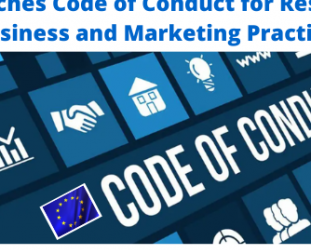
Launch: EU Code of Conduct
On 26 January, Euro Coop, Independent Retail Europe and EuroCommerce joined the EU...
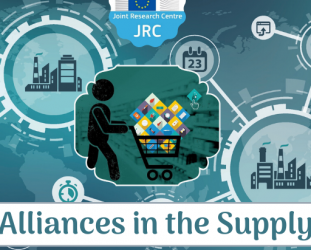
Press Release - JRC Report: Retail Alliances
Read in PDF . On 13 May 2020, the Joint Research Center (JRC) of the EU Commission...
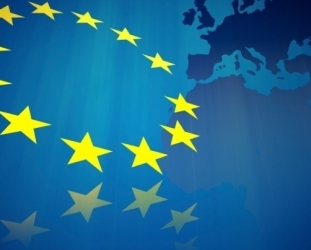
Unfair Trading Practices Heating Up Brussels
Members of European Parliament from the Agricultural Committee voted in favour of extending the...
Latest Enterprises Policy stories
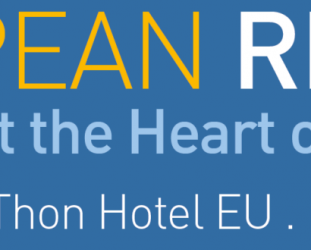
European Retail Day
4 March 2020, Brussels The second European Retail Day – a joint...
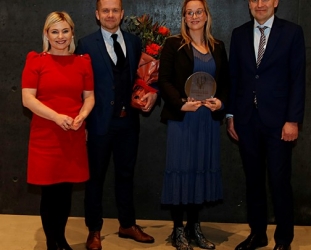
Coop Iceland Receives Business Education Award
Samkaup , Coop Iceland's retail chain has been awarded the country's Business...
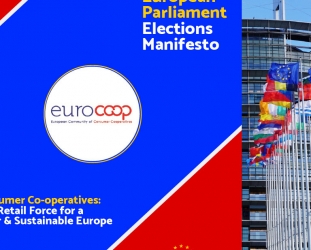
Manifesto: EU Elections 2019
The Manifesto for the European Parliament Elections outlines the key policy...

